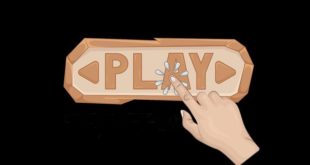A GARDENING expert has revealed several clever tricks that help to deter squirrels throughout autumn.
Laura Bamborough said the “naturally curious” animals can wreck plants and sheds if left unprovoked.

The critters can cause extensive damage to gardens by chewing holes into the structure of sheds, eating plants, and stripping trees of their bark.
It is illegal to release a trapped grey squirrel into the wild or keep it in captivity, without a license.
Bamborough is an expert at outdoor and leisure product specialists GardenBuildingsDirect.co.uk.
She said the damage they cause is most noticeable in autumn as they’re busy “rummaging” in preparation for winter.
Luckily, they can be discouraged from gardens using several non-toxic hacks.
Bamborough revealed a £1 buy many people already have in their kitchens can be effective for deterring them.
“Squirrels have strong noses and find things such as cayenne pepper, ground chilli and pepper flakes unpleasant,” she told The Express.
“Pungent smells such as coffee grounds, peppermint and apple cider vinegar are also items squirrels strongly dislike.
“These can be sprinkled around the garden without causing damage to any of your plants or lawn.”
Supermarket-bought pepper powders such as cayenne or chilli can be applied to gardens as either a spray or sprinkled around plants.
Alternatively, apply a “small amount” of dog hair or a thin layer of coffee grounds.
Bamborough recommended protecting trees with metal or plastic guards while opting for a fine wire mesh to cover bulbs.
Wire mesh or steel wool can be equally useful for blocking openings in sheds which squirrels may gnaw at.
Other gaps and holes can be filled using a waterproof sealant.
October gardening jobs

The Sun’s Gardening Editor, Veronica Lorraine, has shared the jobs you need to tackle in October.
“It’s a good time to trim deciduous hedges – like box, yew, hawthorn, hornbean and beech – plus hedge trimmers are a great upper body workout!
Make leafmould – gather up all the fallen leaves and fill either bin bags or plastic carrier bags. Seal the top, stick a few small holes in the bag – and then store for a year or more. Free compost!
It’s unlikely you’ll get any more red tomatoes so have one final harvest and chuck the plants on the compost. See if you can get the green ones to ripen by putting in a drawer (some say with a banana). Also keep the seeds from a couple – and plant again next year if they went well.
Finish getting in your spring bulbs. Ideally you’d have done daffs and alliums, but tulips are better in the ground when the soil temperature gets a bit colder.
It’s good to leave some plant litter in the ground – it adds to the nutrients as it rots down, and provides shelter and food for insects. But remove the manky brown bits collapsing all over the lawn/winter structure.
Mulch – it not only suppresses weeds, but keeps the soil warm, improves water retention and adds a little winter duvet to your outside space.
October’s a good month for carrots, peas, asparagus, broad beans, and rhubarb.”
A long-term solution for keeping squirrels from destroying gardens is ensuring it’s filled with plants they “turn their noses up to.”
Mint, marigolds, nasturtiums, or mustard are Bamborough’s top picks.
“You can also try crown imperial bulbs (Fritillaria), but it is recommended that you plant these far away from inhabited areas such as patios or porches because of their strong skunk-like smell,” she said.
The tips come after Chris, Heligan’s Ornamental Gardens supervisor, revealed many of squirrels’ natural food sources are dwindling.
He also raves about using chicken wire to protect bulbs from being eaten.
“Once they’ve [spring bulbs] shot, the squirrels don’t tend to bother with them and you can remove the wire and allow the bulbs to come up,” he said.
“You can use this method on bare ground if you’re on an empty bed or allotment bed, and a nice aesthetic choice would be to mulch over the top, to hide the mesh, just some leaf mould or composted bark.”

